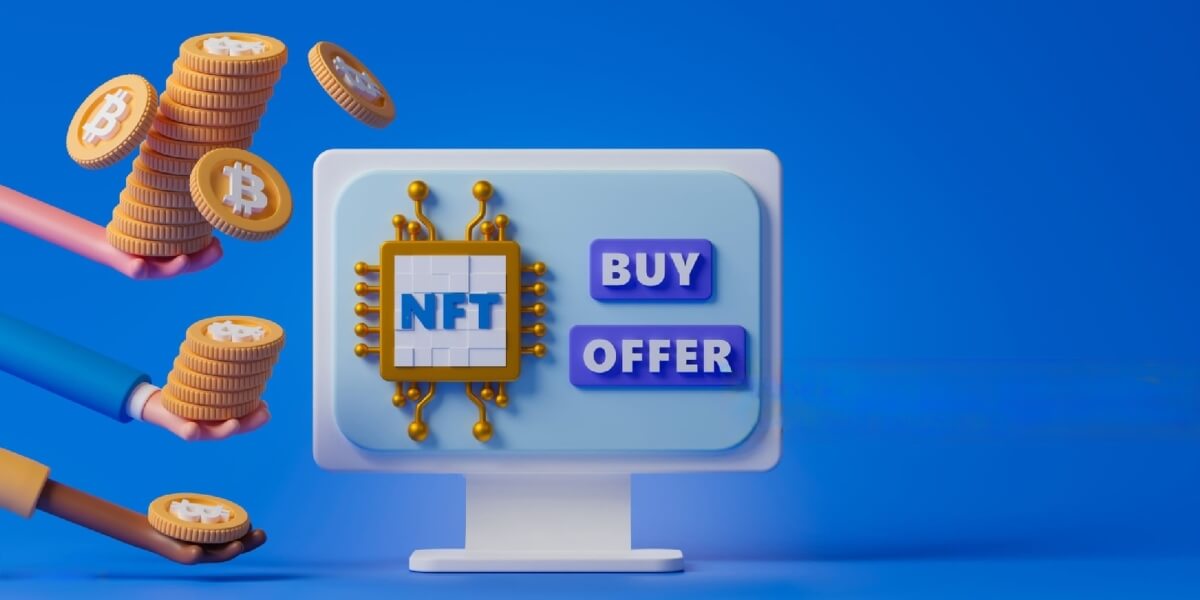
So, you’ve probably heard all the buzz about NFTs, right? But what’s this talk about an “NFT marketplace”?
Okay, so picture this: you know how you can buy and sell stuff online, like clothes, books, or even your old gadgets? Well, an NFT marketplace is kinda like that, but for digital art and collectibles.
NFT stands for “Non-Fungible Token,” and it’s a fancy way of saying that these digital items are one-of-a-kind and can’t be duplicated.
In an NFT marketplace, artists, musicians, and creators can put up their unique digital creations for sale. It could be anything from a digital painting to a rare video clip. And collectors or fans can buy them using cryptocurrencies like Ethereum. Each item gets a special digital certificate, the NFT, that proves you own the original digital thingamajig.
How Does an NFT Marketplace Work?
Okay, let’s break it down. NFT marketplaces are like the middlemen in the digital world. They use blockchain technology to verify and record ownership of NFTs. When you want to buy or sell an NFT, you create an account on one of these platforms.
Imagine you’re an artist. You’ve just created a fantastic piece of digital artwork. You decide to mint it into an NFT, essentially turning it into a unique digital asset. Then, you list it on an NFT marketplace for others to see. When someone wants to buy it, they place a bid or make a direct purchase. The blockchain records this transaction, so everyone knows who owns the digital masterpiece.
Now, you have your very own NFT in your digital wallet, and it’s officially yours! You can choose to keep it or put it back on the marketplace for others to admire and potentially purchase.
Types of NFT Marketplaces

NFT marketplaces come in all shapes and sizes. Some are super fancy, like exclusive art galleries, where famous artists showcase their work. Others are more like bustling street markets, with all sorts of digital goodies at different price points.
There are open marketplaces like OpenSea, where anyone can list their NFTs. Then there are specialized ones, like Rarible, which lets you create your own NFTs and sell them. Some focus on basketball and music, others on virtual real estate in the metaverse.
So whether you’re into art, music, or gaming, there’s an NFT marketplace tailored just for your interests. You can explore different platforms and see which one resonates with your passion.
Read also! 5 Reasons Why NFTs Will Survive No Matter What
Tips for Finding an NFT Marketplace
Okay, here are some tips for finding the right NFT marketplace for you:
- Research, Research, Research: Check out different marketplaces to see which one suits your interests. Some are better for art, others for music, and some for gaming.
- Check Fees: Be aware of the fees. Some marketplaces charge fees for listing, selling, or transferring NFTs. Make sure you know what you’re getting into.
- Community Matters: Join forums, chat with other collectors, and see what they recommend. Sometimes, the best tips come from fellow NFT enthusiasts.
- Security First: Look for marketplaces with strong security measures. You’re dealing with digital assets, so safety matters.
- User-Friendly: Pick a marketplace that you find easy to navigate. You want your NFT journey to be enjoyable, not confusing.

